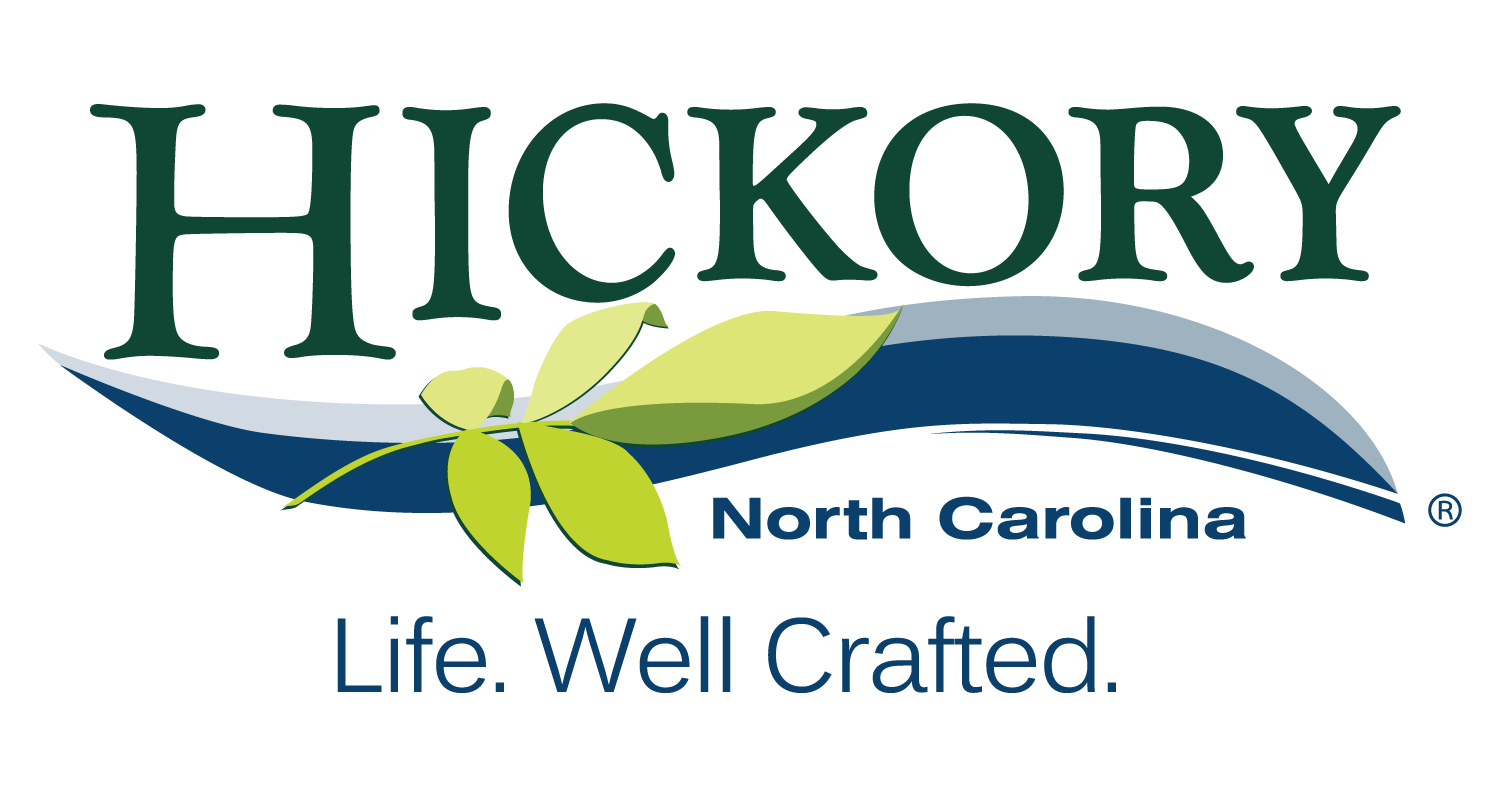Trail Markers - City Walk
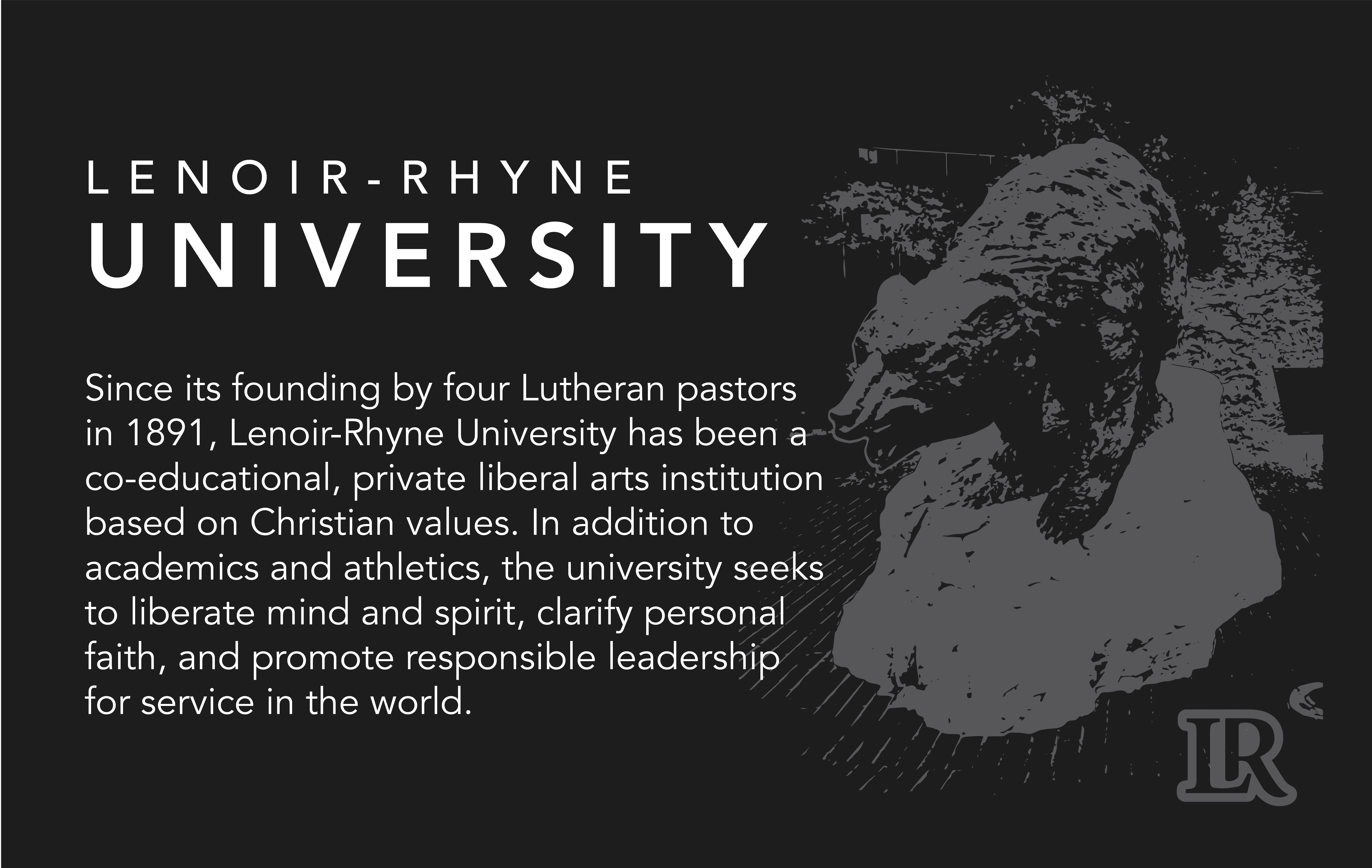
Lenoir-Rhyne University
Since its founding by four Lutheran pastors in 1891, Lenoir-Rhyne University has been a co-educational, private liberal arts institution based on Christian values. In addition to academics and athletics, the university seeks to liberate mind and spirit, clarify personal faith, and promote responsible leadership for service in the world.
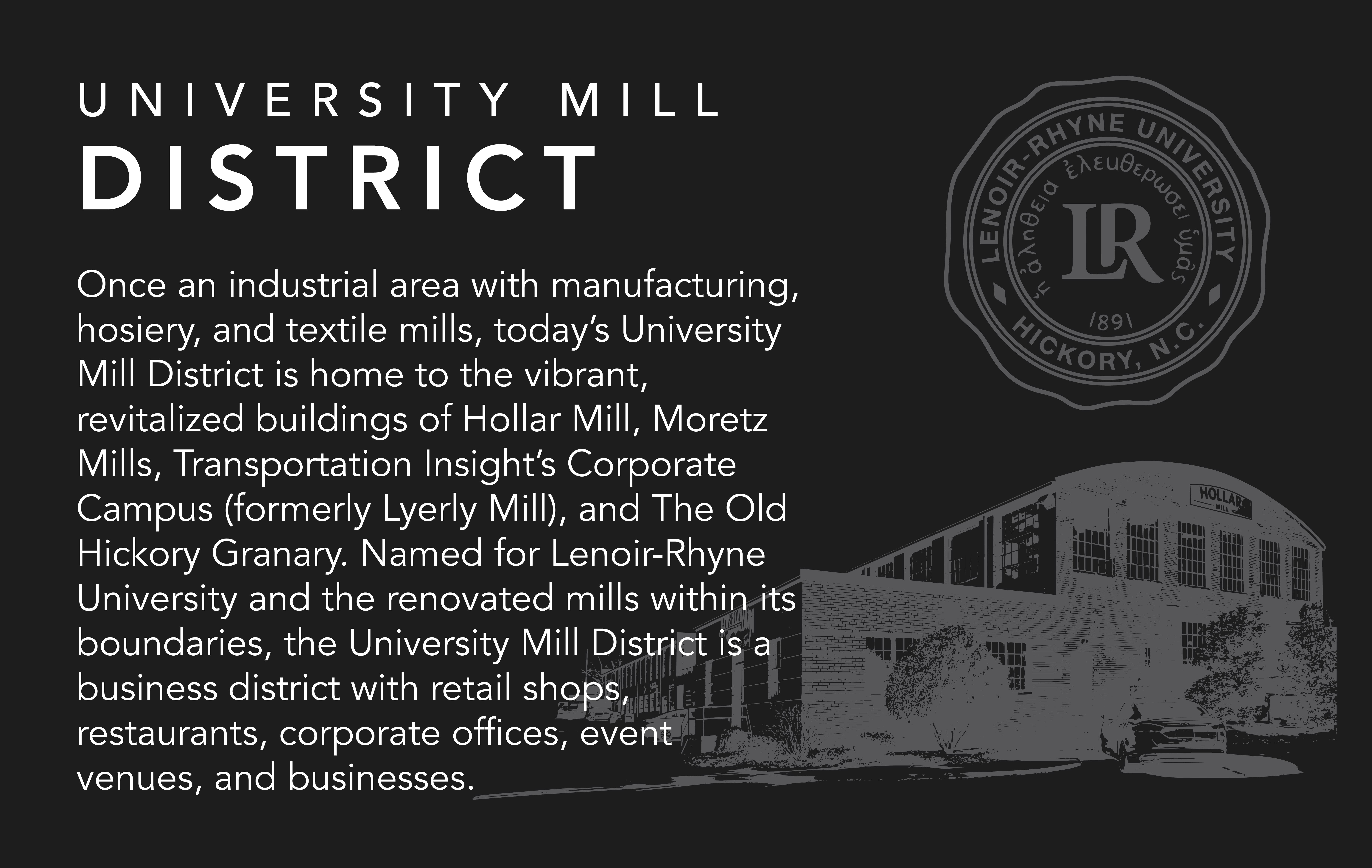
University Mill District
Once an industrial area with manufacturing, hosiery, and textile mills, today’s University Mill District is home to the vibrant, revitalized buildings of Hollar Mill, Moretz Mills, Transportation Insight’s Corporate Campus (formerly Lyerly Mill), and The Old Hickory Granary. Named for Lenoir-Rhyne University and the renovated mills within its boundaries, the University Mill District is a business district with retail shops, restaurants, corporate offices, event venues, and businesses.
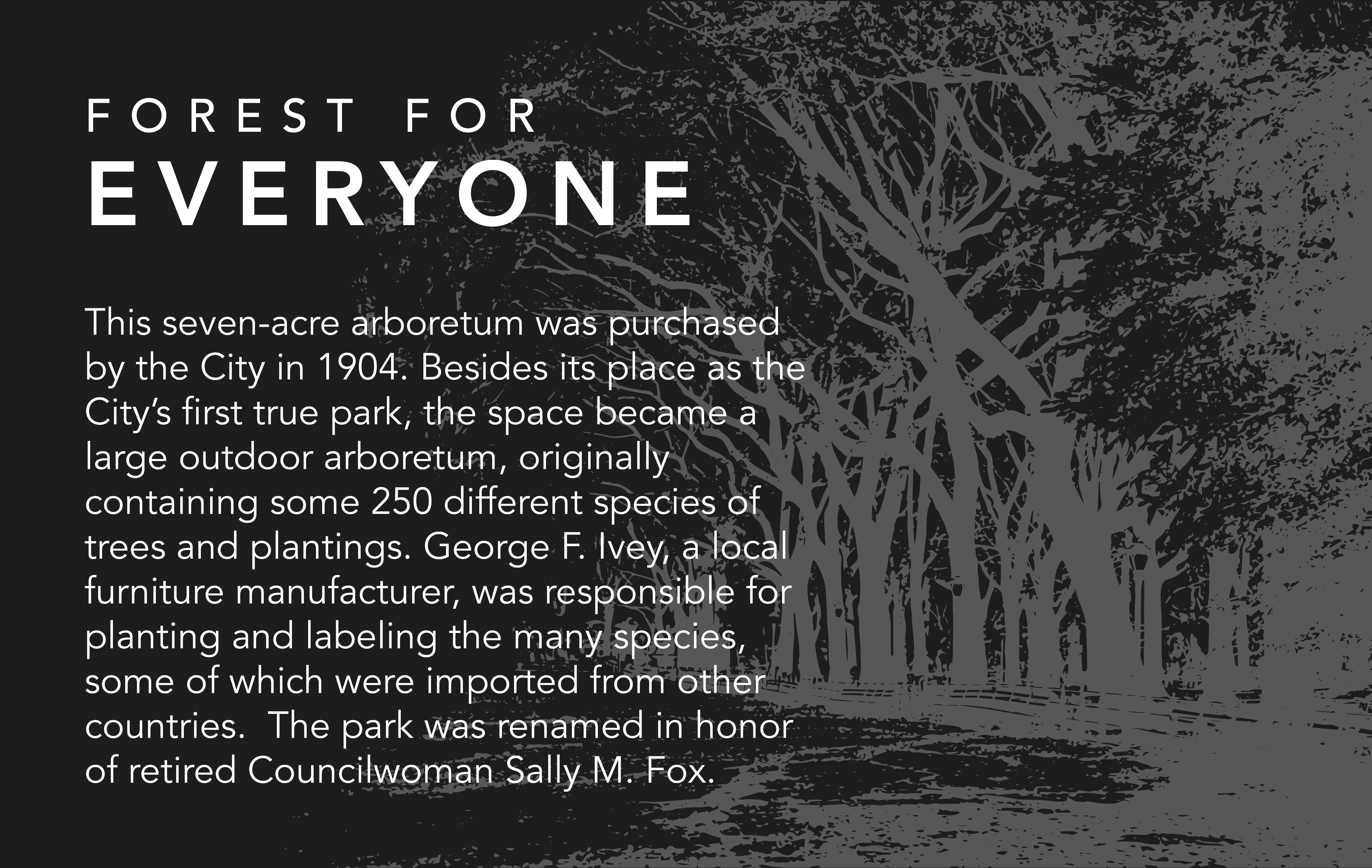
Forest for Everyone
This seven-acre arboretum was purchased by the City in 1904. Besides its place as the City’s first true park, the space became a large outdoor arboretum, originally containing some 250 different species of trees and plantings. George F. Ivey, a local furniture manufacturer, was responsible for planting and labeling the many species, some of which were imported from other countries. The park was renamed in honor of retired Councilwoman Sally M. Fox.
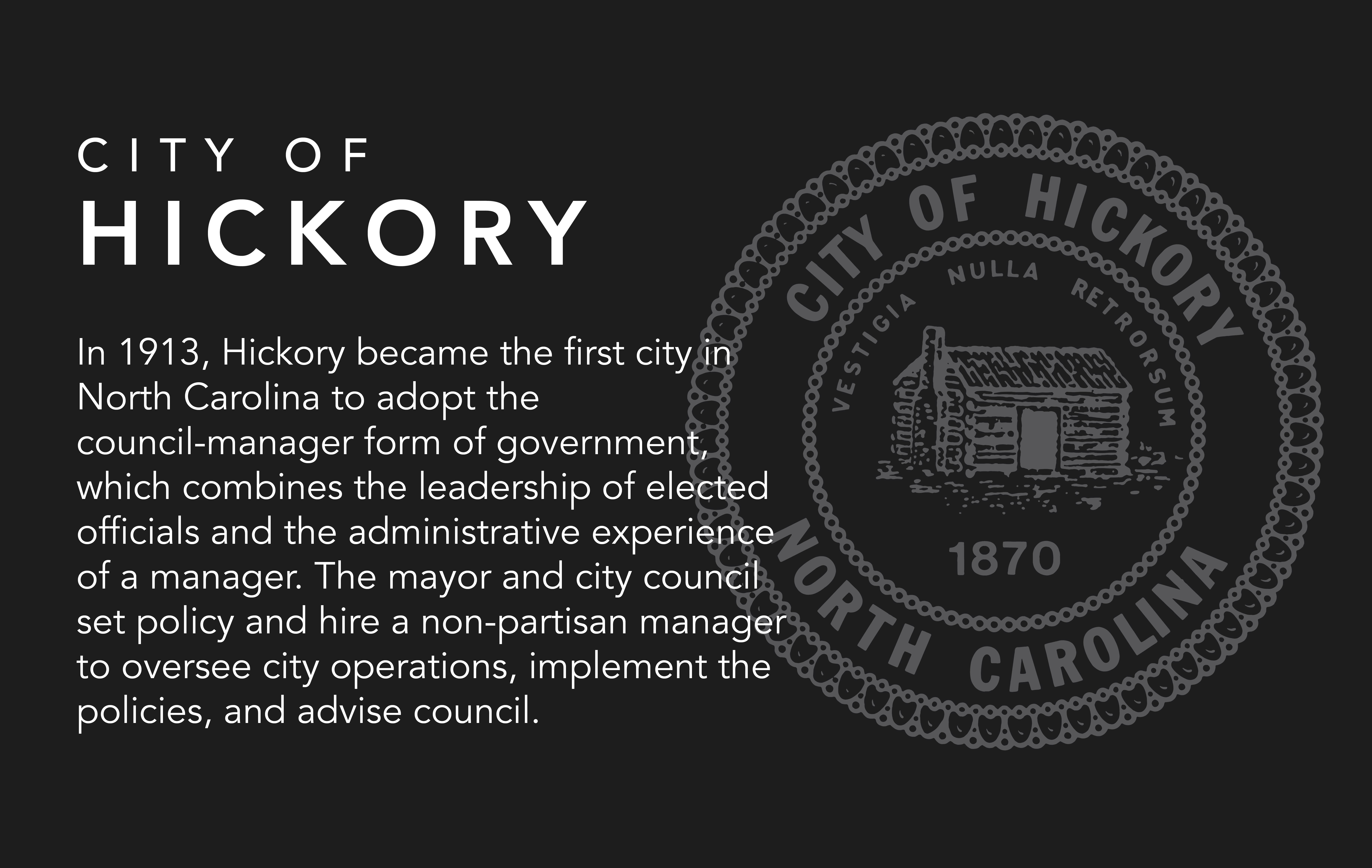
City of Hickory
In 1913, Hickory became the first city in North Carolina to adopt the council-manager form of government, which combines the leadership of elected officials and the administrative experience of a manager. The mayor and city council set policy and hire a non-partisan manager to oversee city operations, implement the policies, and advise council.
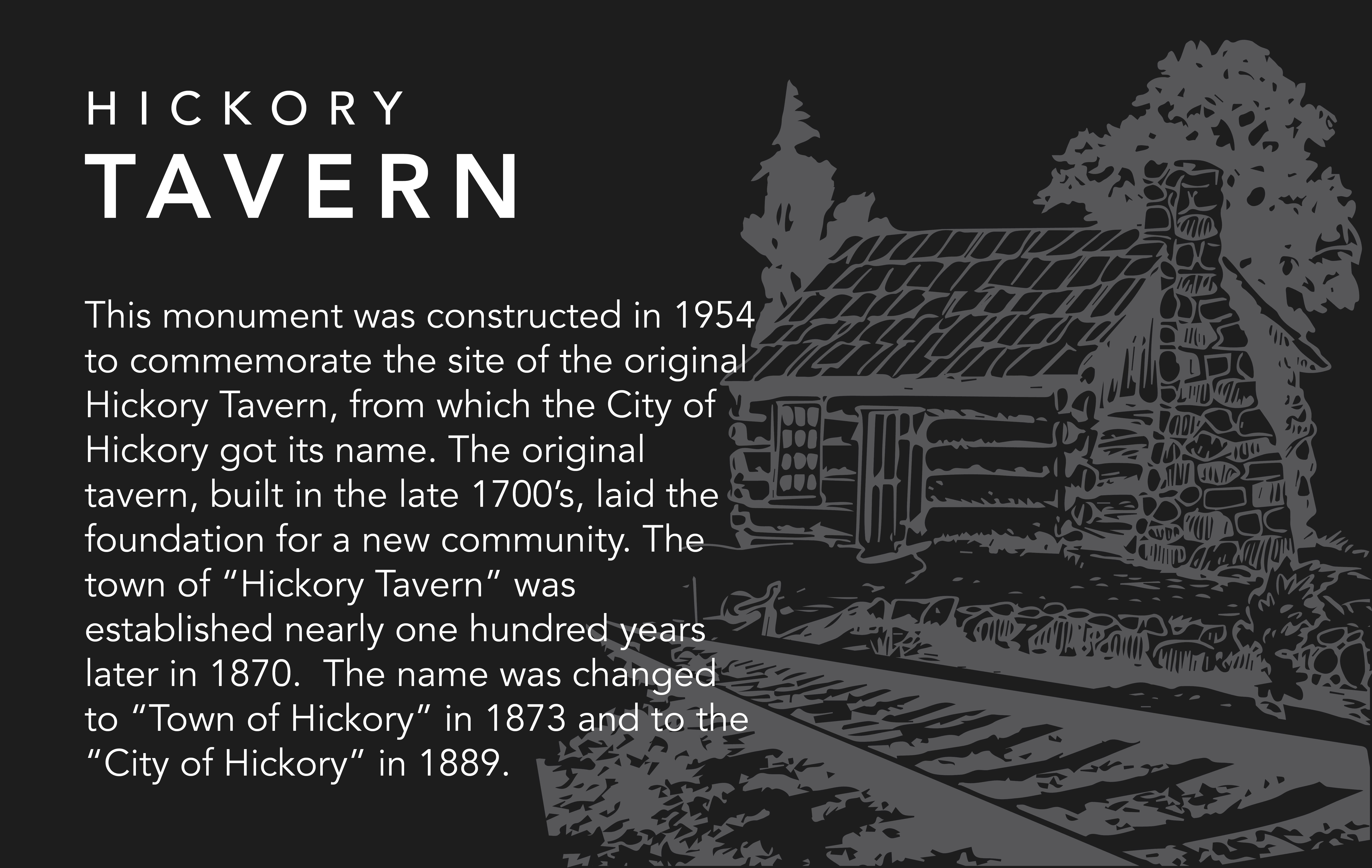
Hickory Tavern
This monument was constructed in 1954 to commemorate the site of the original Hickory Tavern, from which the City of Hickory got its name. The original tavern, built in the late 1700’s, laid the foundation for a new community. The town of “Hickory Tavern” was established nearly one hundred years later in 1870. The name was changed to “Town of Hickory” in 1873 and to the “City of Hickory” in 1889
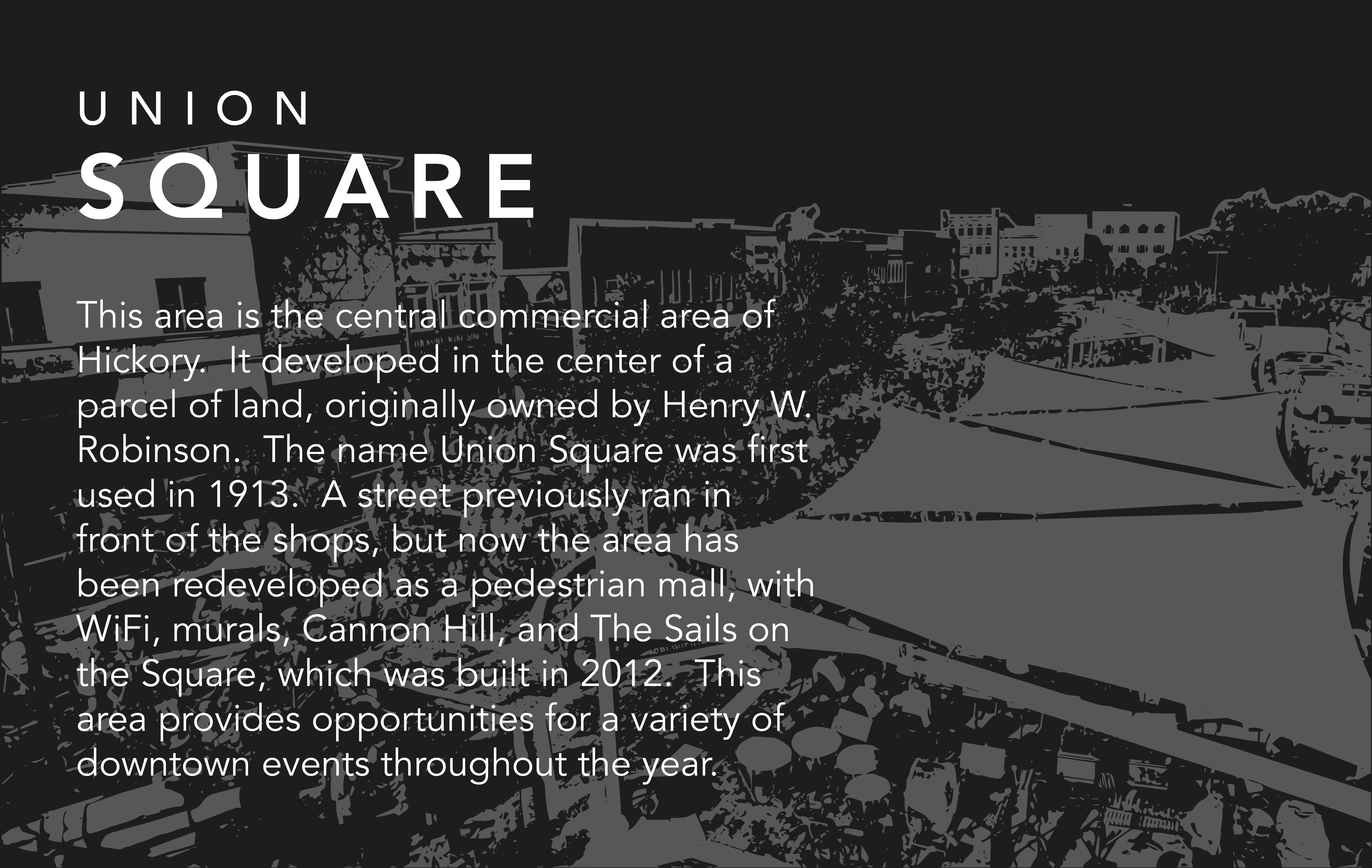
Union Square
This area is the central commercial area of Hickory. It developed in the center of a parcel of land, originally owned by Henry W. Robinson. The name Union Square was first used in 1913. A street previously ran in front of the shops, but now the area has been redeveloped as a pedestrian mall, with WiFi, murals, Cannon Hill, and The Sails on the Square, which was built in 2012. This area provides opportunities for a variety of downtown events throughout the year.
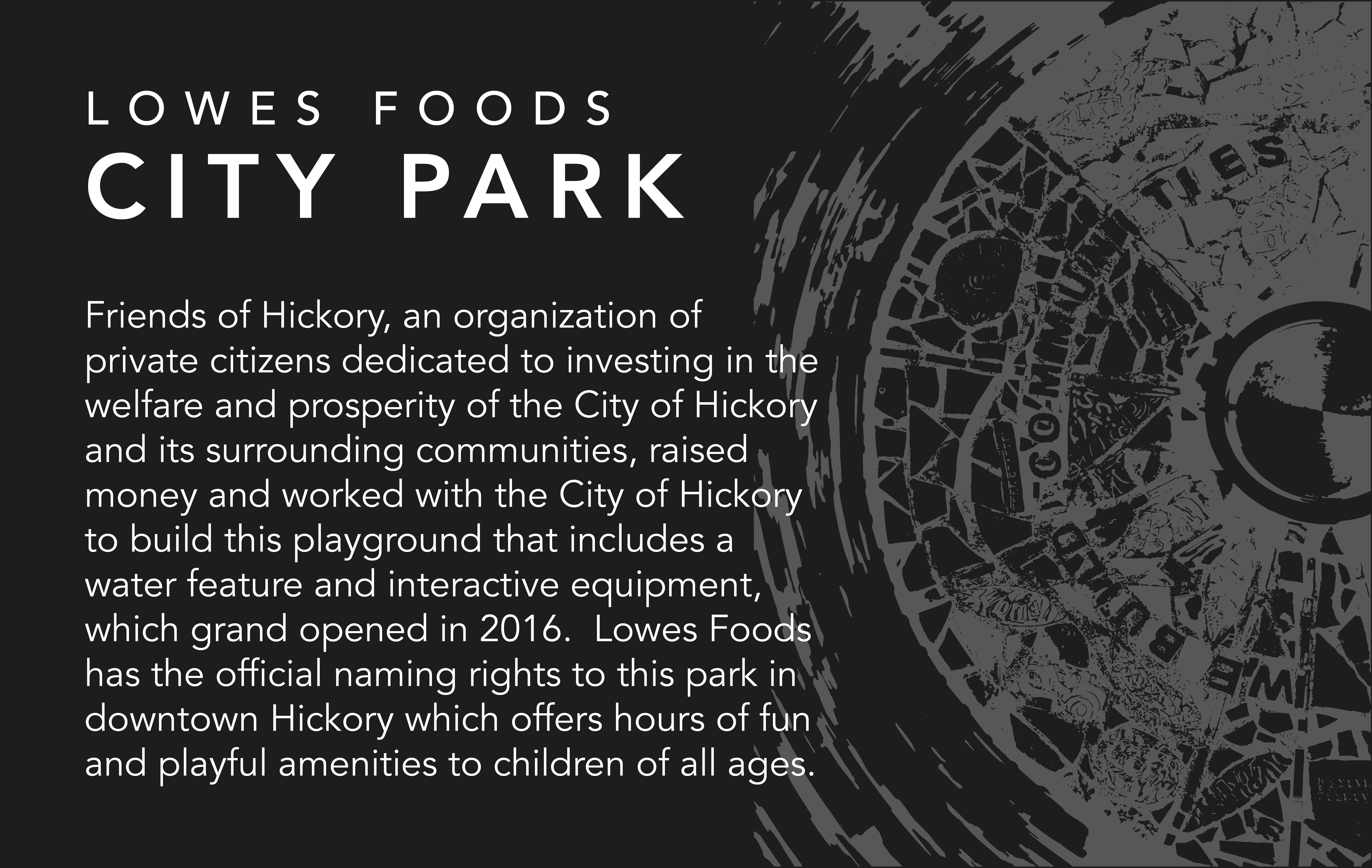
Lowes Foods City Park
Friends of Hickory, an organization of private citizens dedicated to investing in the welfare and prosperity of the City of Hickory and its surrounding communities, raised money and worked with the City of Hickory to build this playground that includes a water feature and interactive equipment, which grand opened in 2016. Lowes Foods has the official naming rights to this park in downtown Hickory which offers hours of fun and playful amenities to children of all ages.
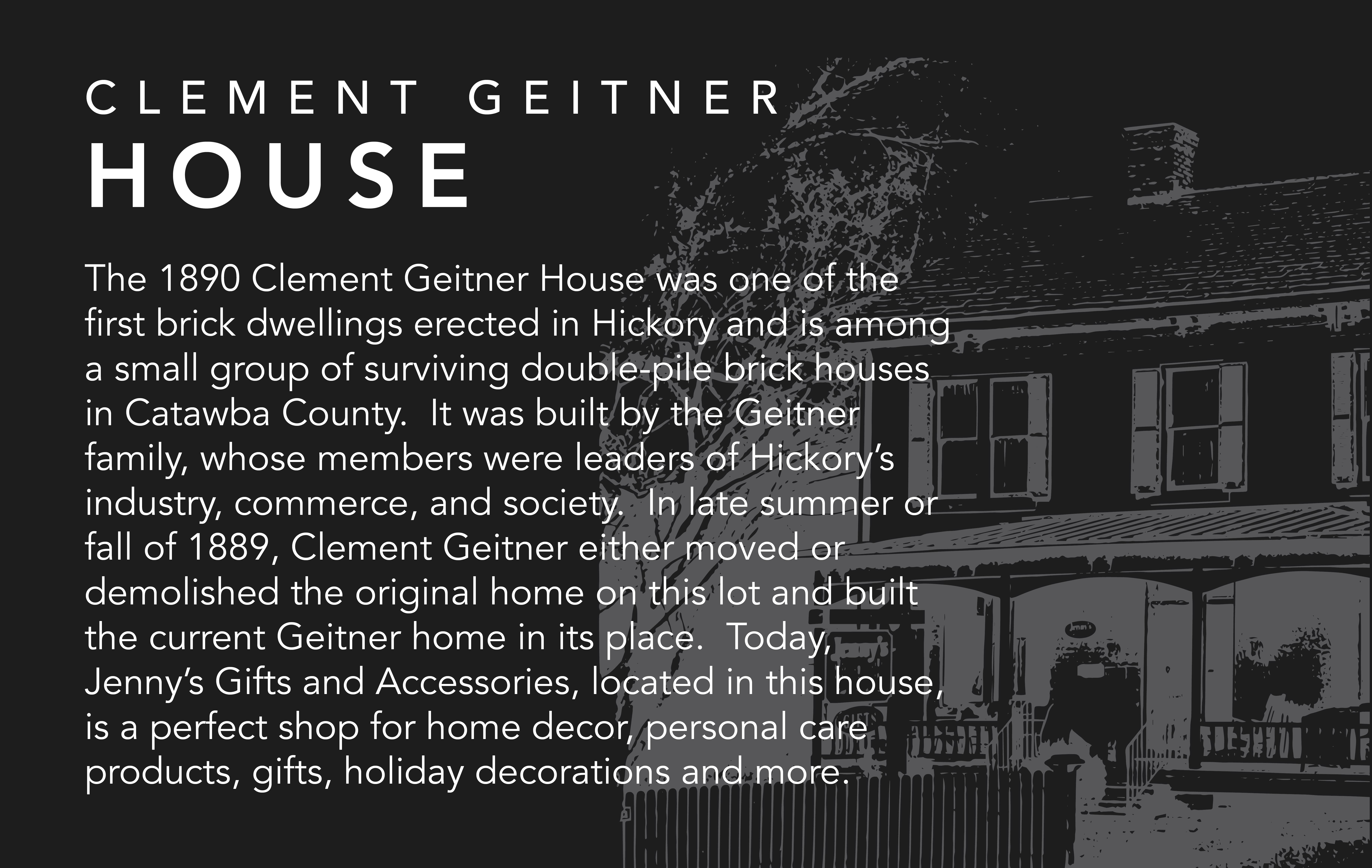
Clement Geitner House
The 1890 Clement Geitner House was one of the first brick dwellings erected in Hickory and is among a small group of surviving double-pile brick houses in Catawba County. It was built by the Geitner family, whose members were leaders of Hickory’s industry, commerce, and society. In late summer or fall of 1889, Clement Geitner either moved or demolished the original home on this lot and built the current Geitner home in its place. Today, Jenny’s Gifts and Accessories, located in this house, is a perfect shop for home decor, personal care products, gifts, holiday decorations and more.
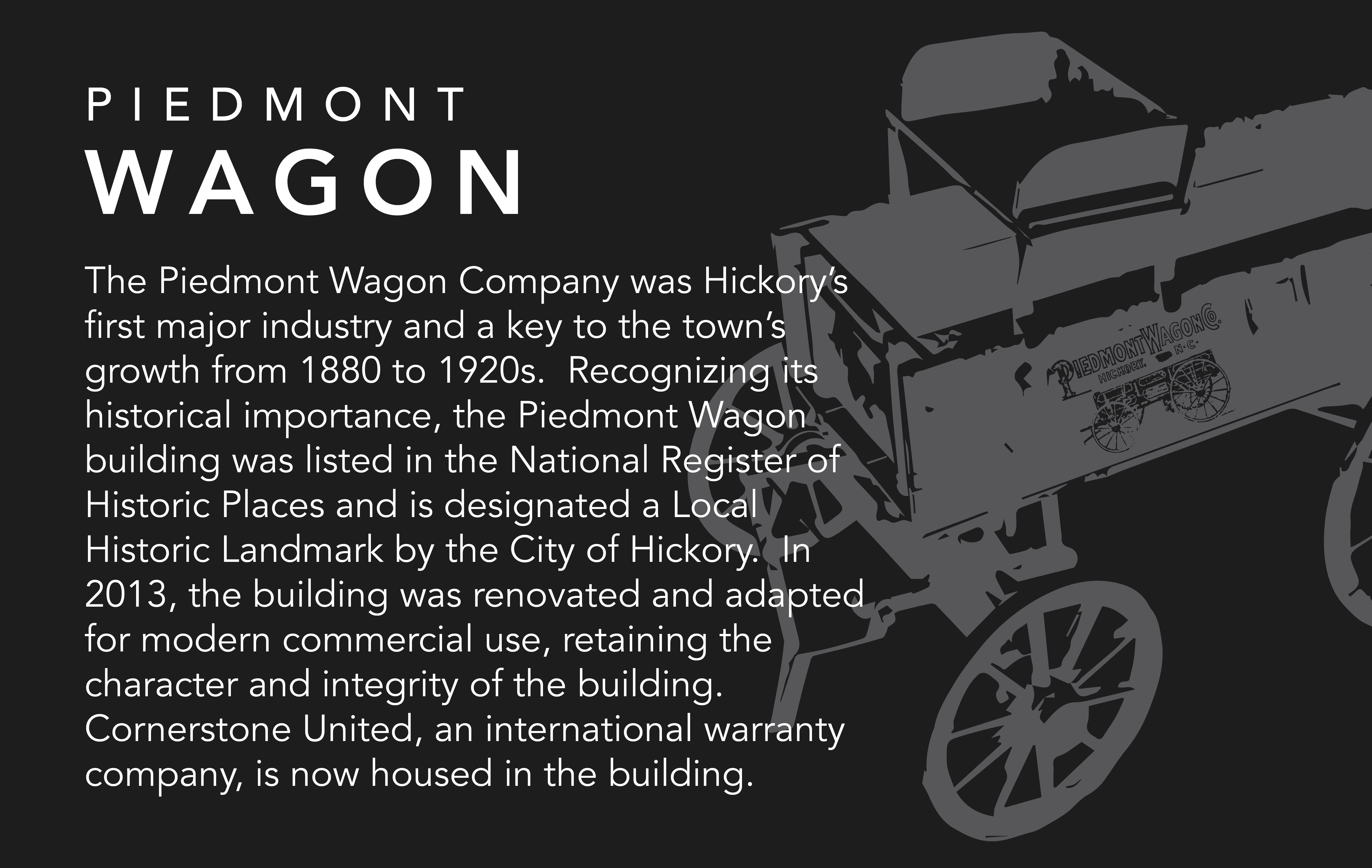
Piedmont Wagon
The Piedmont Wagon Company was Hickory’s first major industry and a key to the town’s growth from 1880 to 1920s. Recognizing its historical importance, the Piedmont Wagon building was listed in the National Register of Historic Places and is designated a Local Historic Landmark by the City of Hickory. In 2013, the building was renovated and adapted for modern commercial use, retaining the character and integrity of the building. Cornerstone United, an international warranty company, is now housed in the building.
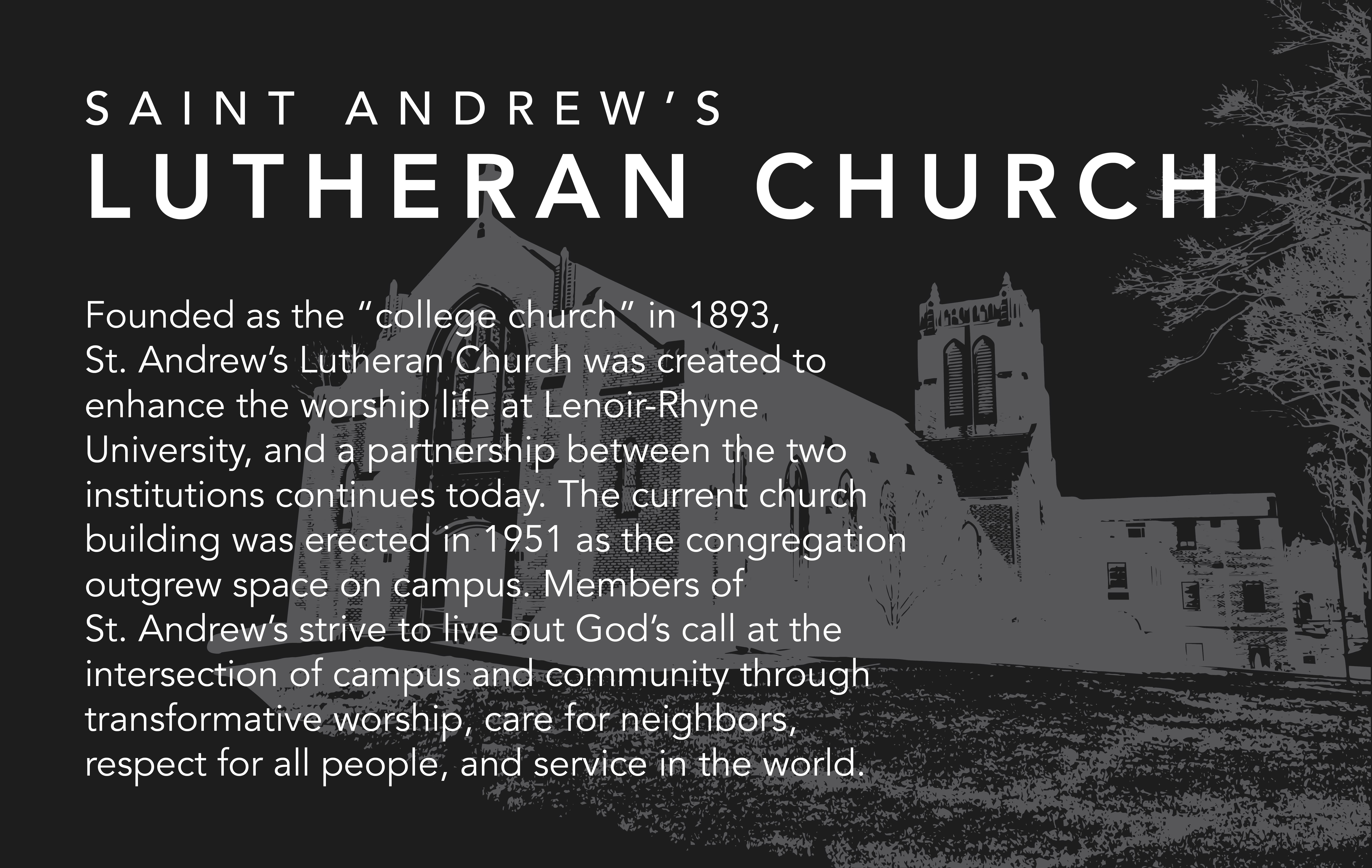
Saint Andrew's Lutheran Church
Founded as the “college church” in 1893, St. Andrew’s Lutheran Church was created to enhance the worship life at Lenoir-Rhyne University, and a partnership between the two institutions continues today. The current church building was erected in 1951 as the congregation outgrew space on campus. Members of St. Andrew’s strive to live out God’s call at the intersection of campus and community through transformative worship, care for neighbors, respect for all people, and service in the world.
